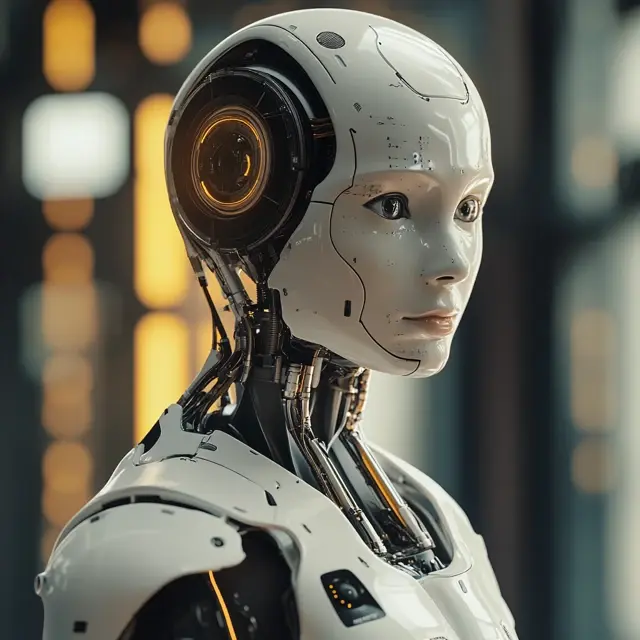
Artificial intelligence (AI) has a profound and multifaceted impact on various aspects of our lives. This influence can be seen in the economy, healthcare, education, transportation, entertainment, and many other areas.
Economy:
AI automates routine tasks, increasing productivity and efficiency. In industry, robots and automated production control systems (APCS) replace humans at many stages of production. In the service sector, AI is used to process call center calls, personalize offers for customers, and manage inventories. In the financial sector, AI helps analyze risks, predict market trends, and detect fraudulent transactions.
Healthcare:
AI helps doctors make more accurate diagnoses by analyzing medical images and patient data. It is also used to develop new drugs and treatments, personalized medicine, and monitor patients' condition. In surgery, AI helps perform complex operations with high accuracy.
Education:
AI can personalize learning, adapting to the needs of each student. It also helps automate checking assignments and answering students' questions. AI is used to create virtual assistants who can explain educational material and help students learn.
Transport:
AI is used to create autonomous vehicles that can move without human intervention. This can lead to a reduction in the number of accidents, improved transport accessibility, and time savings. AI is also used to optimize traffic and manage traffic flows.
Entertainment:
AI is used to create more realistic video games, movies, and other entertainment products. It also helps personalize recommendations for users, offering them content that may be of interest to them. AI is used to create virtual worlds in which users can interact with each other and with the environment.
Social sphere:
AI is used to solve social problems such as poverty, hunger, and inequality. It can also help in managing cities and infrastructure, predicting natural disasters and responding to them. AI is used to create face recognition systems and data analysis, which can help in ensuring security.
Limitations and risks:
Despite numerous advantages, AI also has limitations and risks. These include:
Ethical issues: AI can make decisions that have ethical consequences. For example, an autonomous car can choose who to save in the event of an accident.
Unemployment: Automation caused by AI can lead to job losses.
Security: AI can be used to create weapons and other dangerous technologies.
Inequality: Access to AI and its benefits may be uneven, which will lead to increased social inequality.
It is important to note that the impact of AI on society is in its development stage, and its consequences have not been fully studied. It is necessary to continue research and discussion of the ethical and social aspects of AI development to ensure its use for the benefit of humanity.
Conclusion:
AI has a huge impact on various aspects of our lives, and this impact will only intensify in the future. It is important to understand both the advantages and risks associated with the development of AI to ensure its use for the benefit of society.





































































































This article got me thinking! AI is already changing our lives in so many ways, and it's both exciting and a little bit scary to consider how much further it will go. I'm curious about its potential to transform healthcare and education especially.
Cool :)